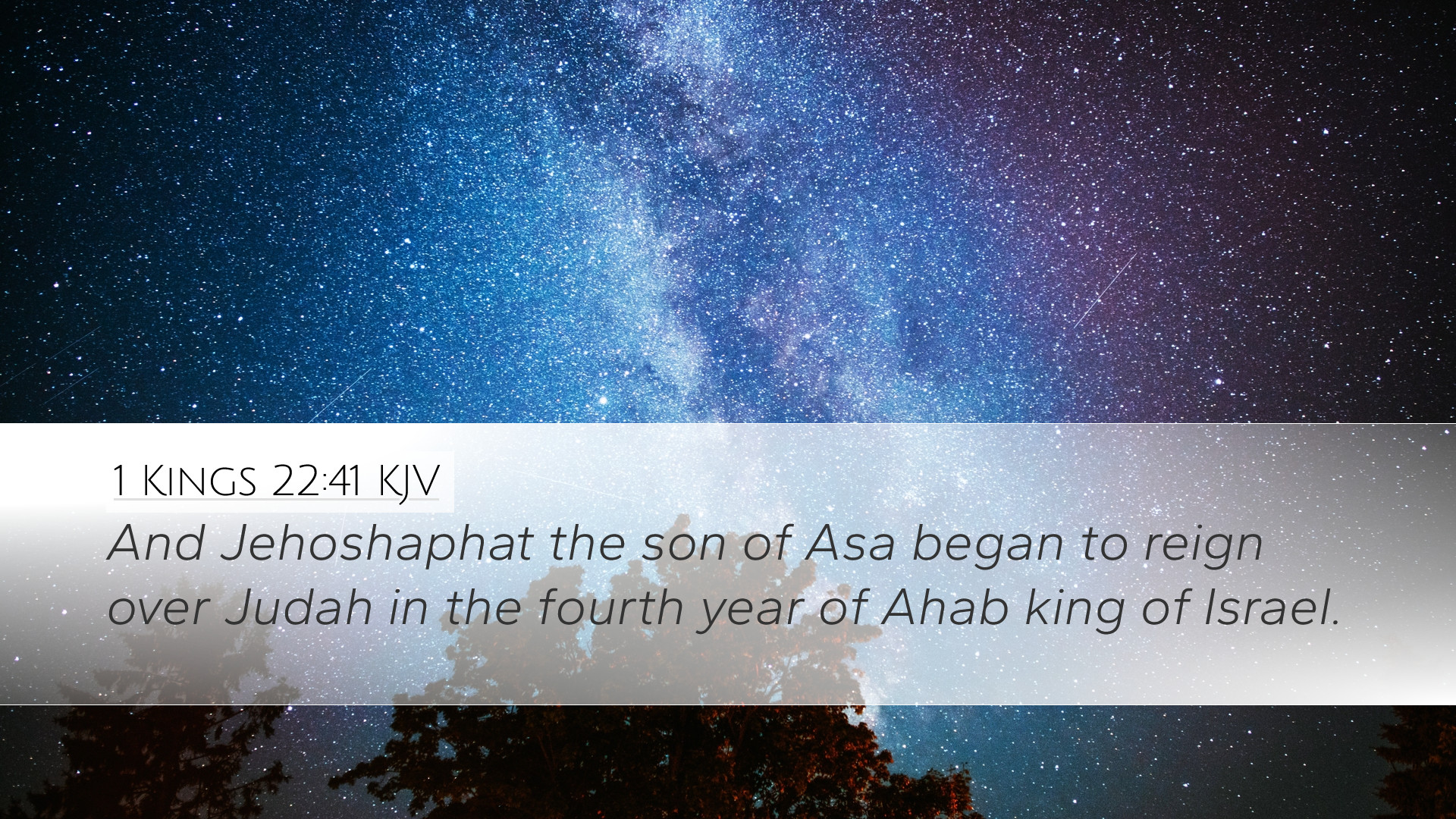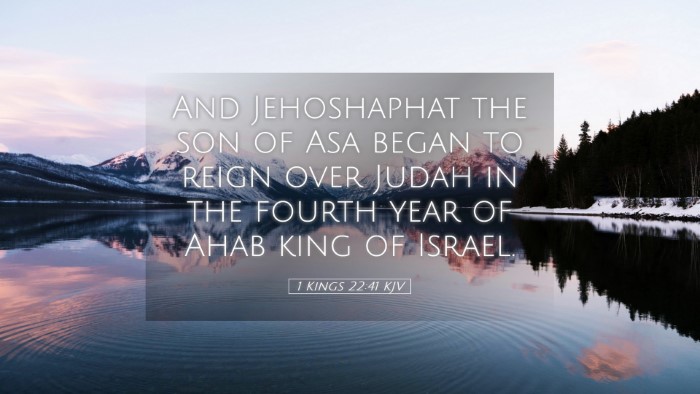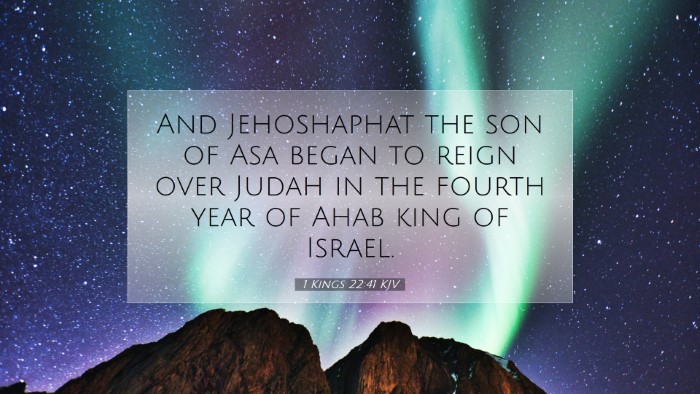Commentary on 1 Kings 22:41
1 Kings 22:41 states, "And Jehoshaphat the son of Asa began to reign over Judah in the fourth year of Ahab king of Israel."
Introduction
This verse serves as a transition in the narrative of 1 Kings as it introduces Jehoshaphat, the king of Judah, during the reign of Ahab in Israel. It sets the stage for the theological and political developments that follow in the account, marking a significant period in the history of the divided monarchy.
Historical Context
Jehoshaphat's reign is pivotal in understanding the dynamics between the northern kingdom of Israel and the southern kingdom of Judah. His ascension occurs amidst Ahab's controversial reign, setting a timeline that is crucial for scholars and theologians studying the prophetic and historical elements of this era.
Insights from Commentary
- Matthew Henry's Commentary: Henry emphasizes that Jehoshaphat’s reign is noteworthy for its adherence to the ways of the Lord. His alignment with Ahab indicates a complex relationship that had both political and spiritual implications for Judah.
- Albert Barnes' Notes: Barnes notes the significance of Jehoshaphat's reign beginning under Ahab’s rule. This timeframe is essential because Ahab's reign was marked by great idolatry and moral decline, which impacted the spiritual climate both in Israel and Judah.
- Adam Clarke's Commentary: Clarke highlights how Jehoshaphat’s initial endeavors for reform and his alliance with Ahab through marriage signal both a cautionary tale and an opportunity for divine encounters, as prophetic voices emerge in response to their actions.
Theological Significance
The mention of Jehoshaphat in this context invites theological reflection on the nature of righteous leadership amidst prevailing wickedness. It prompts discussions regarding divine providence, the sovereignty of God in ordaining rulers, and the call for both personal and corporate repentance in the face of national sin.
Righteous Leadership
Jehoshaphat's reign is often contrasted with Ahab’s, creating a dichotomy between righteousness and unrighteousness. This distinction is significant for pastors and leaders, reminding them of the importance of leading according to God’s principles, even in a world full of moral challenges.
Alliance and Its Loses
In his alliance with Ahab, Jehoshaphat raises questions about discernment in relationships. The implications of forming partnerships with those who lead in contrary ways to God's commands resonate throughout scripture, highlighting the potential perils of such alliances.
Lessons for Leadership
- Integrity in Leadership: Jehoshaphat's character, as noted by Henry, illustrates the importance of integrity in leadership—seeking the Lord in all decisions is crucial for those in positions of power.
- Wisdom in Alliances: Rather than merely seeking political gain, leaders are challenged to seek wisdom from the Lord regarding whom to ally with, ensuring that partnerships reflect a commitment to righteousness.
- Vigilance Against Compromise: The account encourages vigilance against spiritual compromise; Jehoshaphat’s journey is a reminder that even those who start well can falter when surrounded by influences that pull them away from God.
Implications for Today’s Church
The narrative encapsulated in 1 Kings 22:41 reverberates through time, asking contemporary leaders to evaluate their own contexts. Just as Jehoshaphat had to navigate his reign wisely, church leaders today are called to pursue God’s wisdom in their ministries amidst a culture that often stands opposed to biblical truths.
Conclusion
This verse is more than just a historical marker; it serves as a reflective point for all who study scripture. Jehoshaphat's leadership journey allows pastors, students, theologians, and scholars to draw lessons about faithfulness, discernment, and the pursuit of righteousness amidst complex socio-political landscapes. The implications of this reign continue to challenge believers to lead lives that honor God first, above all earthly alliances.


